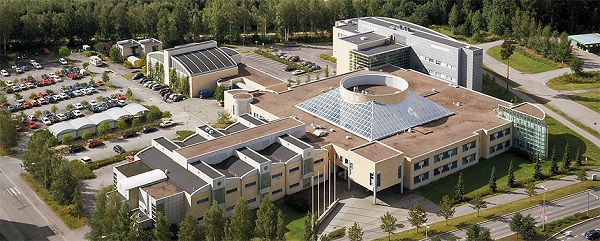The point of this blog is to relate it to studies in Metropolia as well as to tell you guys something about my experience in education. Since I have been studying in Metropolia for 2,5 month only, I can’t really compare many things to the places where I have studied before. That is why I decided to tell you about how eventually I ended up studying in Metropolia. The thing is that I have managed to graduate from two schools at the same time: while studying in the IB program, I did my Russian curriculum on a distance education.
Here we go!
The actual studying process in Russian school and IB program differs a lot. In Russia, pupils have 19 courses which continue for the whole year, while in IB the number of courses is only 6. I can’t really say which one I prefer more because on the one hand, it is good to concentrate only on 6 subjects and get really good at them by the end of the program, but on the other hand, having 19 subjects widens your outlook a lot. Another difference is grading system. In Russia you never know when the test will be, this makes you scared and prepared for each class. In IB you have only pre exams and finals. It’s also good, since you have to do many more things apart the actual syllabus, but then you find yourself trying to read everything at the last minute 😀 Another thing is that in Russia students are lucky enough to just do their everyday homework, pass tests and graduate with no problems, however IB is a hell of a challenge that makes you write several academic papers, do 150 hours of volunteering and still nobody guarantees that you will survive until the end and get your diploma..After all here I would chose IB over Russian school, it is a challenge, and even if it makes you study all the time, forget about friends and the world out there, in the end of the day it made me realize that I have achieved a big goal in my life and made my family proud of me. I don’t regret about becoming such a nerd for a while, I became smarter, more experienced, fearless and that is why now I am where I am looking forward to a bright future.
Now let me tell you about more interesting things. Another comparison that I would like to share with you is students’ life inside of both schools. I can name only three big events that my Russian school offered to pupils: Eurovision (which was really fun!), New Years disco and a talent show. All these were fun but because schools get little money for this sort of things, they all lacked visual effect, almost no decorations, children would rarely wear costumes. This is my class by the way, performing on the Eurovision. We were covering ”It’s my life” perfomance from Glee.It maked us spend more time with each other preparing the perfomance, eventually many of us became friends.
There was way much more fun in Finnish lukio. I have experienced so many great events organised by the school. We had baptising, old dances, school night, second graders cruise, gala, lazy day when everyone would wear pijamas, summer and winter Olympic games, Christmas show and many many more!!
Baptising takes place in the beginning of every new study year and all the first graders swear to obey elder students and after that get lots of water top of their heads!
School night is one of the best ones. Each year there is a different theme for that. The one on the picture was about Rock festivals. School offers special food, the whole school is decorated according to the theme, all pupils dress up accordingly and organise a great show.
Old dances is a beautiful day organised for second grade students. All girls look like princesses and guys wear suits. We all practice for several months and learn old fashion dances. In my case we also learned Gangnam Style as a surprise dance. After the dances all the participants went to an after party to a hotel that we booked for the next day. But this is another story which is not likely to be appropriate for this assignment….:P
After all I feel happy and proud of myself for completing two schools, I see twice more opportunities. And great that I have already chosen one of them, Metropolia University of Applied Sciences! It really does connect people! In this short period of time I met lots of amazing people, coming from all over the world and how amazing it is to listen to their experience and ways that brought them to Metropolia. Even in our small group for this blog assignment, all the members have really fascinating international stories about how they ended up in Metropolia. I am greatful to be in this international, communicative and friendly enviroment. Let’s see where I go next, but by this moment, Metropolia is the best place to be 🙂















